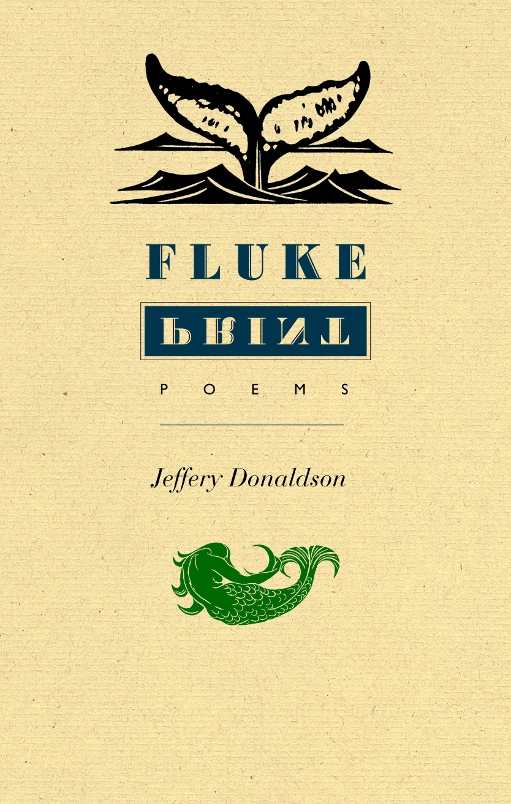Fluke Print
Dynamic line breaks, phrasing, and wordplay propel these poems forward.
Divided into three numbered sections, Jeffery Donaldson’s Fluke Print explores writing, relationships, and heartbreak, always alert to the chance nature of what seems fixed. Poems are frequently voiced by a first-person speaker; there’s a reflexive fixation in the speaker’s gaze, perpetually attuned to what’s present but also emphasizing a fundamental absence lurking just beneath the surface. Lyric, narrative, and formal, these poems display an agility that showcases technique while also serving as an emotional blind.
There’s a insouciance sustained across the poems that belies the technical proficiency underneath. Dynamic line breaks, phrasing, and wordplay propel these poems forward. Many poems rotate around a central turn, such as the tension between a title or opening line and an extended metaphor or image continued through to the poem’s resolution. Crafted to create movement, the poems compel a superficial energy that trips from line to line—even when, as stated in “Uttoxeter,” they’re poems that make “nothing happen.”
Meta poems about words and the act of writing are frequent, and Donaldson’s originality of expression reinvigorates the trope. While not every poem on the theme is successful, even the most pedestrian contain occasional lyrical surprises in their turns of phrase, like a fountain pen that spreads its “blue privates.” One of the best poems in this vein is “Poem Whisperer,” where the speaker addresses the poem in the second person using language reminiscent of courtship: “My only trick was to make you / think my move was your move.” The speaker woos the poem with “word of an apple,” beseeching it to “Come nearer and taste it. / I promise not to put you down.”
Abstractions confound obscure expressions, as with “Last Thinks,” a poem in twenty-one parts, which contains some of the collection’s most moving, and most abstract, lines. In Section IV, an imagined dialogue with an absent ex-lover balances its abstractions with the luminous particulars of a closed door, a Tim’s drive-through, and a cloud, when “just being itself becomes / a burden, the way ahead clear.” In Section XXI, language is reduced to a shell in a shell game:
Would it have changed if we’d continued on,
made astringent feel like euphoria,
and learned how to make friends with lack?
Would we gain more than we already have,
just by having it once more? It may be
looking forward to a remembered past
is loss’s way of staying in touch. I choose
the poem that, out of love, will stop dead,
and leave the last thought that goes after you.
When lines state their emotions without embodying the speaker’s emotional state, sentiment is exchanged for sentimentality.
Too guarded and abstract to be confessional and too personal to offer widespread insights, these poems stall in a middle ground. Variously glib, resistant, and melancholy, there’s a poetic distance that rings of wariness amid concerns about the erosion and destruction of meaning in the speaker’s world.
Reviewed by
Letitia Montgomery-Rodgers
Disclosure: This article is not an endorsement, but a review. The publisher of this book provided free copies of the book and paid a small fee to have their book reviewed by a professional reviewer. Foreword Reviews and Clarion Reviews make no guarantee that the publisher will receive a positive review. Foreword Magazine, Inc. is disclosing this in accordance with the Federal Trade Commission’s 16 CFR, Part 255.

